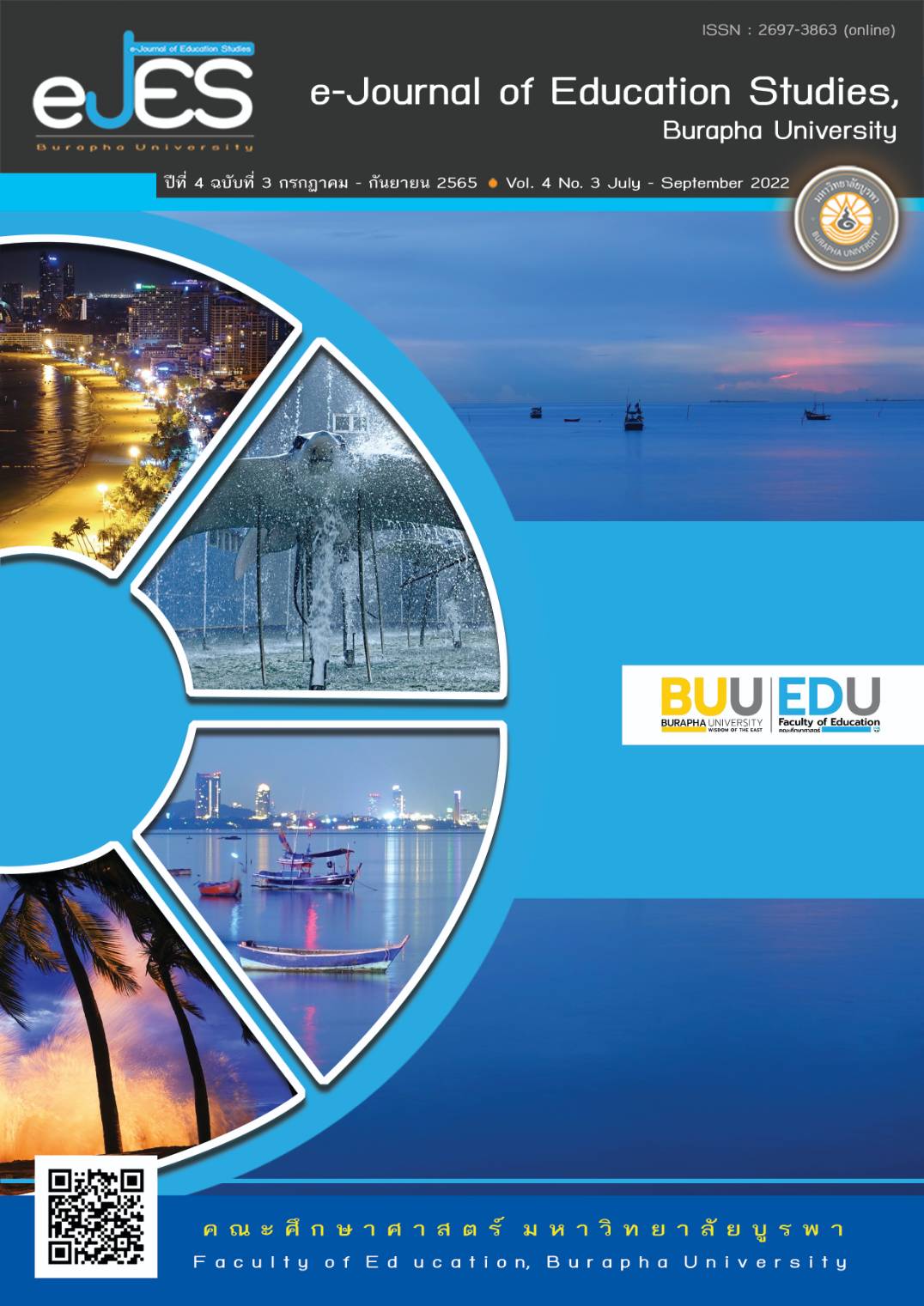A Tracer Study of Graduates of Bachelor of Education in Early Childhood Education Program from Pakse Teacher Training College, Academic Year 2019 – 2020
Main Article Content
บทคัดย่อ
The purposes of this study were: 1) to assess the graduates’ acquired and developed skills and competencies obtained from the Bachelor of Education in Early Childhood Education (B.Ed. in ECE) programme at Pakse Teacher Training College (Pakse TTC), academic year 2019-2020; 2) to explore the employment situation of the graduates from the programme; and 3) to evaluate the employers’ satisfaction regarding the graduates’ skills and competencies obtained from the programme. The target population in this study was forty-two graduates from the B.Ed. in ECE programme, Pakse TTC, academic year 2019-2020, and nine employers. The instruments used for this data collection are two online questionnaires, one a quantitative questionnaire consisting of thirty-two questions and the other an employers’ satisfaction questionnaire to the graduates of the Bachelor of Education in Early Childhood Education programme at Pakse TTC, consisting of sixteen questions. The collected data was analyzed to find the frequency, percentages, mean, standard deviations and correlation value. From the study, the results show that the skills and competencies that the graduates acquired during their study, in general was at the high level (μ = 3.98, σ = 0.46). The overall correlation between the graduates’ acquired skills and competencies from the programme and the required skills and competencies at work is at the quite high level (ρ = 0.65). The graduates’ employment situation and working status found that 23.81 per cent of the graduates are employed. 88.89 per cent of them have mainly work as a full-time/long-term teacher at private school. 88.89 per cent of work is relevant to the graduates’ qualification. It also found that 76.19 per cent of graduates are unemployed, the main reason is because they were waiting for responses from relevant institutions/organizations. The graduates’ satisfaction level with their work was rated at the high level (μ = 4.14, σ = 0.55) and the employers rated their satisfaction with the graduates’ skills and competencies also at the high level (μ = 4.14, σ = 0.49).
Article Details
เอกสารอ้างอิง
Cohen, R.N. (2004). Introducing Tracer Studies guidelines for implementing Tracer Studies in early childhood programmes. The Hague: Bernard van Leer Foundation.
Cooper, H., Hedges, L.V., & Valentine, J.C. (2019). The handbook of research synthesis and meta-analysis (3rd ed.). New York: Russell Sage Foundation.
Department of Teacher Education. (2012). The Early Childhood Teacher Education Curriculum. Lao PDR: Ministry of Education and Sports.
Department of Teacher Education. (2019). The Early Childhood Teacher Education Curriculum, Revised 2019. Lao PDR: Ministry of Education and Sports.
Schomburg, H. (2003). Handbook for Graduate Tracer Studies. Kassel: University of Kassel, Centre for Research on Higher Education and Work.
Schomburg, H. (2016). Carrying out tracer studies: Guide to anticipating and matching skills and jobs. Volume 6. Luxembourg: Publications Office of the European Union.



